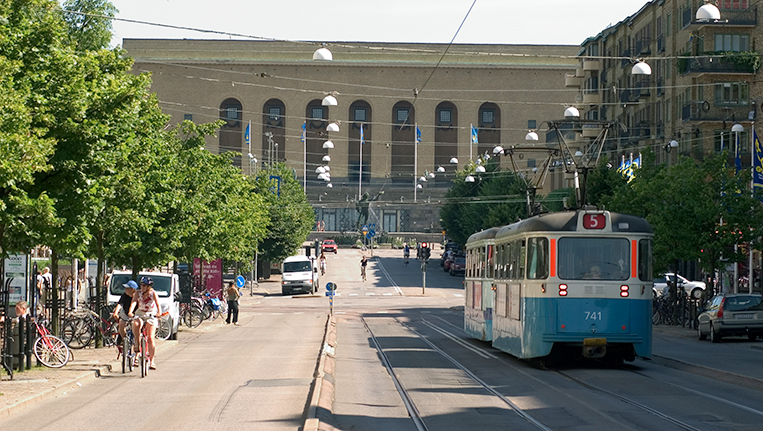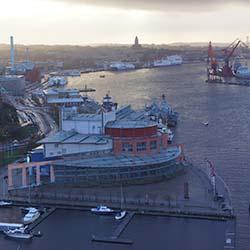
GO:SMART
GO:SMART aim was to help residents in Gothenburg, Sweden to travel smarter. The project has developed and tested an innovative travel service, UbiGo, that is suppose to encourage sustainable travel in the city.
The service has been tested by around hundred households in 2013. The project was divided into six sub-projects that has studied how private and public transportation can be coordinated and adapted to individual needs, ways to reward sustainable travel, electric and hybrid solutions and visualizations and simulations as a way to engage travelers in the design process. All this has resulted in the travel service UbiGo that was field tested in the form of a Living Lab. The six sub projects was:
The seamless traveler
Aimed to bridge the gap between private and public transport through a brokerage service that focuses on solutions for everyday travel. The service was intended to tailor deals to individual needs and gathers different services as public transportation, taxis, electric car pools and bike pools.
The rewarded traveler
Focused on smart ways to reward sustainable transport choices by giving points for each kilometer travelled with a sustainable solution. Points can then be used to pay for other goods and services.
The electrified passenger
Focused on electro mobility and the technological shift towards electric and hybrid power and how it can contribute to an attractive public transport and positive sustainable urban development.
The virtual traveler
Examined how visualization and simulation can support traveler's involvement in the design process of new transportation solutions. Visualization and simulation was also used for evaluation and generalization of the results of the project.
Living Lab
Living Lab integrated the various sub-projects in GO:Smart and develop a travel service that was implemented in a field test, a Living Lab. Potential consumers tested the service.
Evaluation and analysis
Focused on project planning, data collection and supporting the iterative design process and analysis of the project. The analysis compared the project's vision with its results, the results was scaled up, and then develop a business model.
The project is led by CLOSER and Mistra Urban Futures is one of several partners.
Photo: Jan-Olof Yxell







